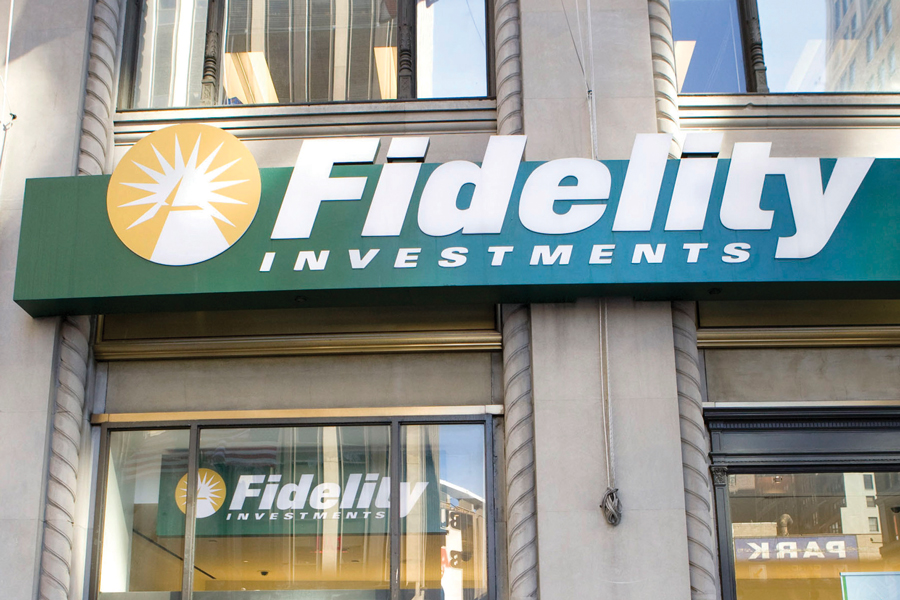

The annual advisory fee for Fidelity Investments’ robo-adviser will drop to zero on accounts with less than $10,000 next month, according to a regulatory filing.
The Fidelity Go program, which officially launched in 2016, currently charges 35 basis points on all accounts. Effective Aug. 1, however, fees will be waived for balances under $10,000, while accounts between $10,000 and $49,999.99 will be charged a $3 monthly fee. Fidelity Go accounts with $50,000 or more will still pay the same 35 basis-point fee.
“Fidelity is constantly looking at ways to bring additional value to customers especially giving access to planning and advice for new and younger investors,” a company spokesperson wrote in an email. The robo-adviser uses a model portfolio based on a client’s investment profile composed of a mix of proprietary, zero expense-ratio mutual funds with no minimum investment, according to the filing.
Fidelity’s move to tier its robo-advice offering could extend a race-to-zero trend similar to zero-commission trades and ETFs the industry witnessed with discount brokerages last year, according to Celent’s Head of Wealth Management William Trout.
“The race to zero is a secular trend to be sure,” he wrote in an email. “In this case, Fidelity is being quite clever in terms of tiering their offer."
For accounts between $10,000 and $49,999.99, the $3 monthly subscription-styled offer is in line with subscription pricing strategies at some of the largest tech giants, like Netflix, Trout said. “If one does the math, it can actually render low-value accounts fairly profitable for the distributor,” he said.
A number of digital platforms at traditional firms have already reduced fees and account minimums. Wells Fargo Advisors, for example, slashed fees for its Intuitive Investor to 35 basis points and cut account minimums to $5,000 in April. Upon initial launch, the minimum investment was $10,000 with a 50 basis-point fee.
Charles Schwab’s robo solution, Intelligent Portfolio, offers a zero-fee option for investments of at least $5,000, according to the company’s website. By comparison, Vanguard’s Digital Advisor requires a $3,000 minimum investment and charges a 0.15% fee.
Robo-adviser adoption is increasing across all age groups, according to a survey by GlobalData, but the appetite for digital investment platforms is still more prominent with younger investors. In fact, robo-adviser usage among Generation Z increased to 16.4% this year, compared with 13.6% in 2019. On the other side of the age spectrum, baby boomers using robo-advisers increased slightly to 7.8% compared with 7.2% last year.
“Lockdown measures have accelerated the wealth management industry’s shift to digital, much to the benefit of robo-advice — a concept that respects social distancing by nature,” GlobalData’s wealth management analyst Sergel Woldemichael said in a statement. “Although the full damage of the current global downturn is yet to be seen, if digital players can remain adaptive, keep in continuous communication with their clients and protect their clients’ wealth, then they should be able to pass their biggest test.”
For firms looking to use robo-advisers to attract a younger demographic of investors, it’s important to note that the client wealth journey starts with cash, not investments, Trout said. “That’s why a whole host of deposit facilitators — like MaxMyInterest and StoneCastle in the RIA space — have emerged to help advisors offer clients interest-bearing accounts.”
Firms like Fidelity have to compete with robo-advisers like Wealthfront and Betterment, which also offer high-yield savings accounts.
“This kind of ‘rate bait’ has for the most part disappeared in the current [interest-rate] environment,” Trout said. “The point remains, however, that Fidelity and competitors like Schwab are still effectively competing against these kinds of offers, even if rates have diminished.”
This article has been updated to accurately reflect Charles Schwab's Intelligent Portfolio investment minimum of $5,000 — not under $5,000 as was previously reported.

A new proposal could end the ban on promoting client reviews in states like California and Connecticut, giving state-registered advisors a level playing field with their SEC-registered peers.

Morningstar research data show improved retirement trajectories for self-directors and allocators placed in managed accounts.

Some in the industry say that more UBS financial advisors this year will be heading for the exits.

The Wall Street giant has blasted data middlemen as digital freeloaders, but tech firms and consumer advocates are pushing back.

Research reveals a 4% year-on-year increase in expenses that one in five Americans, including one-quarter of Gen Xers, say they have not planned for.
Orion's Tom Wilson on delivering coordinated, high-touch service in a world where returns alone no longer set you apart.
Barely a decade old, registered index-linked annuities have quickly surged in popularity, thanks to their unique blend of protection and growth potential—an appealing option for investors looking to chart a steadier course through today's choppy market waters, says Myles Lambert, Brighthouse Financial.
